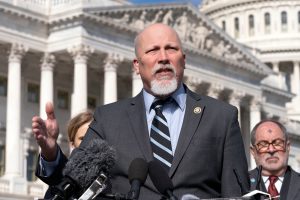
Stapleton: State must continue to invest in nursing homes
As the president and CEO of a non-profit nursing home in Jamaica Plain with a majority of residents who rely on Medicaid, to say the last few years have been tumultuous would be an understatement. I’ve seen the best and the worst of times.
But one thing has remained steadfast, and that is the care and compassion our staff delivers to our residents daily. My heart is filled with gratitude for them.
Eighty percent of our residents rely on MassHealth to pay for their care. Our residents are people who grew up in Boston. They are your neighbors; firefighters, doctors, judges, police officers, nurses just to list a few. They spent their careers giving back to their communities and it’s now their turn to be on the receiving end. They deserve no less.
Ensuring they get the highest quality of care, and their families have peace of mind, takes well-trained staff and it’s been well documented just how dire the staffing shortage is in nursing homes across the Commonwealth. It was difficult before COVID hit and even more difficult with the pandemic.
Our staff shortages have a trickle-down impact — hospitals unable to discharge patients to nursing homes for rehab, nursing homes closing, displacement of residents which creates hardships for their families.
There’s good news too – thanks to substantial investment from lawmakers, nursing homes across the state have made a lot of progress. In ours alone, we’ve been able to substantially increase wages for our frontline staff, hire more people, offer them tangible career ladders, and with the help of state grants, we have been able to add 16 private rooms.
We are not alone. According to data from the Massachusetts Senior Care Association, over the last few years Massachusetts nursing homes have increased wages for direct care staff by 35%, and have had more success recruiting people to work in the sector to the tune of 4,000 additional staff. This has led to more nursing facility beds being available to provide care.
While the sector’s job vacancy rate remains high at 16%, the data show it’s a significant improvement from last year when it was over 20%. And nursing homes have been able to reduce our use of temporary nursing agencies which charge exorbitant rates and negatively impact employee morale and resident experience.
We’re definitely headed in the right direction. But we can’t stop here. The investment from the state must be looked at as a down payment that is producing positive results.
It’s imperative that we build upon our collective achievements, and that will take continued investment. This will allow us to keep increasing wages, hire more direct care staff, and keep up with the ever-rising cost of caring for vulnerable individuals.
Tens of thousands of people and their families count on us to be there for them in their time of need. When nursing homes have to limit admissions due to staffing shortages, or worse yet, close their doors for good, the impacts are felt through the entire health care system.
Over the last few years, we’ve learned a great deal about what it takes to ensure that nursing homes can survive. It’s my hope that our legislators will continue to invest in the sector appropriately, as they see their work bear fruit.
Our incredible residents have given their all to their communities. Their time of need must be met. I’ll say it again: they deserve no less.
Patrick Stapleton is president and CEO of Sherrill House in Jamaica Plain, and Chair of the Board of Registration of Nursing Home Administrators.


